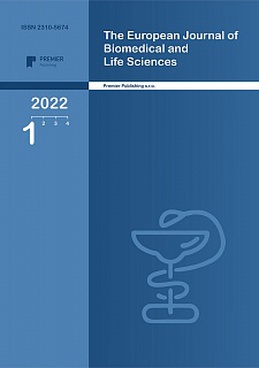DYSREGULATION OF ALTERNATIVE SPLICING IS INVOLVED IN MAJOR DEPRESSIVE DISORDER
Authors
Wenqiao Yu

Share
Annotation
Major Depressive Disorder (MDD) is a mental disorder caused by brain malfunction. It’s one of the most common mental disorder, effecting over 7% of the population. Most studies agree that MDD is most likely caused by many different factors, some genetic and some environmental, instead of one specific single nucleotide polymorphism (SNP). This study collected numerous SNPs related to MDD and looked at the function of these genes. We selected the most significant one, alternative splicing for further analysis. By taking a closer look at the three genes that are directly involved in alternative splicing, which are CELF4, RSRC1, and RBFOX1, we were able to understand how it effect the brain. The gene RSRC1 increased the gene expression in the brain and nerves. Data from other studies also showed that CELF4 and RBFOX1 and decrease the gene expression level in other organs. To sum those data up, the dysregulation of alternative splicing can cause the gene expression in different organs to alter in a way that increase the risk of MDD. The systematic abnormity of the alternative splicing process plays an essential role in MDD. Using this study, scientist will be able to better understand how alternative splicing can contribute to MDD and some genes associated with this process.
Keywords
Authors
Wenqiao Yu

Share
References:
[1] Douglas F. Levinson, M.D., Walter E. Nichols, M.D.. Major Depression and Genetics. n.d.
[2] Felix Torres, M.D.. What Is Depression?. October 2020
[3] Alyssa. Depressed Brain vs. Normal Brain. 24 Mar. 2021
[4] Nancy Schimelpfening. How Genetics Can Play a Role in Depression. December 03, 2020
[5] Eric J. Nestler. The Genetics of Depression: What is Known, What is Next. November 2017. Video available from: https://www.hopefordepression.org/research-funding-and-impact/video-genetics-depression/
[6] Le François B, Zhang L, Mahajan GJ, Stockmeier CA, Friedman E, Albert PR. A novel alternative splicing mechanism that enhances human 5-HT1A receptor RNA stability is altered in major depression. J Neurosci. 2018; 38:8200–10. 10.1523/JNEUROSCI.0902-18.2018
[7] Chang LC, Jamain S, Lin CW, Rujescu D et al. A conserved BDNF, glutamate- and GABA enriched gene module related to human depression identified by coexpression meta-analysis and DNA variant genome-wide association studies. PLoS One 2014;9(3):e90980. PMID: 24608543
[8] Rusch HL, Robinson J, Yun S, Osier ND et al. Gene expression differences in PTSD are uniquely related to the intrusion symptom cluster: A transcriptome-wide analysis in military service members. Brain Behav Immun 2019 Aug;80:904-908. PMID: 31039430
[9] Leday GGR, Vértes PE, Richardson S, Greene JR et al. Replicable and Coupled Changes in Innate and Adaptive Immune Gene Expression in Two Case-Control Studies of Blood Microarrays in Major Depressive Disorder. Biol Psychiatry 2018 Jan 1;83(1):70-80. PMID: 28688579
[10] Sibille E. Molecular Evidence for a Dimensional Basis of Depression. Jan 01, 2016.
[11] Chang LC, Jamain S, Lin CW, Rujescu D et al. A conserved BDNF, glutamate- and GABA-enriched gene module related to human depression identified by coexpression meta-analysis and DNA variant genome-wide association studies. PLoS One 2014;9(3):e90980. PMID: 24608543
[12] Lanz TA, Reinhart V, Sheehan MJ, Rizzo SJS et al. Postmortem transcriptional profiling reveals widespread increase in inflammation in schizophrenia: a comparison of prefrontal cortex, striatum, and hippocampus among matched tetrads of controls with subjects diagnosed with schizophrenia, bipolar or major depressive disorder. Transl Psychiatry 2019 May 23;9(1):151. PMID: 31123247
[13] Kong SW, Collins CD, Shimizu-Motohashi Y, Holm IA et al. Characteristics and predictive value of blood transcriptome signature in males with autism spectrum disorders. PLoS One 2012;7(12):e49475. PMID: 23227143
[14] Glatt S.J., Cohen O.S., Faraone S.V., Tsuang M.T.. Dysfunctional gene splicing as a potential contributor to neuropsychiatric disorders. Am. J. Med. Genet. Part B: Neuropsychiatric Genet. 2011; 156:382–392.
[15] Vuong C.K., Black D.L., Zheng S. The neurogenetics of alternative splicing. Nat. Rev. Neurosci. 2016;17:265–281. doi: 10.1038/nrn.2016.27.
[16] Pandya M., Altinay M., Malone D.A., Anand A. Where in the Brain Is Depression? Curr. Psychiatry Rep. 2012;14:634–642. doi: 10.1007/s11920-012-0322-7.
[17] Gene [Internet]. Bethesda (MD): National Library of Medicine (US), National Center for Biotechnology Information; 2004 – [cited 2021, Aug, 31]. Available from: https://www.ncbi.nlm.nih.gov/gene/56853
[18] Gene [Internet]. Bethesda (MD): National Library of Medicine (US), National Center for Biotechnology Information; 2004 – [cited 2021, Aug, 31]. Available from: https://www.ncbi.nlm.nih.gov/gene/51319
[19] Gene [Internet]. Bethesda (MD): National Library of Medicine (US), National Center for Biotechnology Information; 2004 – [cited 2021, Aug, 31]. Available from: https://www.ncbi.nlm.nih.gov/gene/54715
[20] Stephanie Faris. Is Depression Genetic?. April 5, 2021
[21] The American College of Obstetricians and Gynecologists. Depression. June 2005. Available from: https://dmh.lacounty.gov/our-services/employment-education/education/depression/


